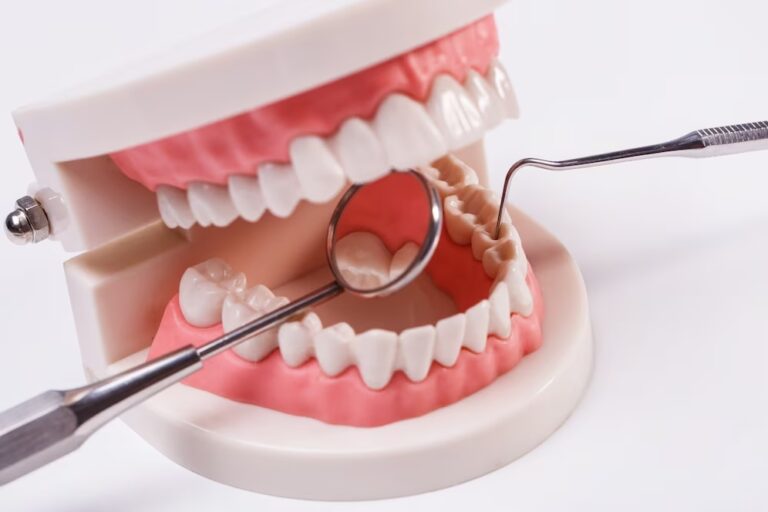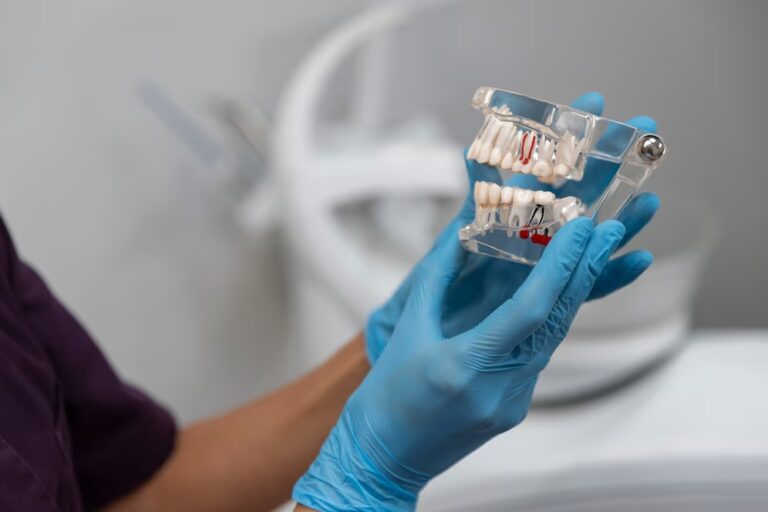A healthy, balanced diet brings numerous benefits to your overall well-being, and this includes supporting the health of your gums. While dental hygiene practices like brushing and flossing play a key role in maintaining gum health, your diet can significantly impact the condition of your gums and your susceptibility to gum disease. Consuming the right foods, rich in essential nutrients, can help boost your immune system, promote the growth of good oral bacteria, and strengthen the gums and teeth to ward off gum disease.
At Colorado Gum Care Northglenn, CO, our dedicated team of dental professionals understands the vital connection between nutrition and gum health. We are committed to helping you maintain a radiant, healthy smile by offering guidance on the best diet and nutrition practices that foster optimal oral health. Integrating the right food choices into your daily routine can significantly improve gum health and contribute to a long-lasting, beautiful smile.
In this article, we will explore the connection between nutrition and gum health, highlighting the role of specific nutrients in maintaining and improving the state of your gums. We will also provide guidance on incorporating these essential nutrients into your diet, empowering you to take control of your gum health and overall oral well-being.
Essential Nutrients for Optimal Gum Health
1. Vitamin C
Vitamin C plays a vital role in maintaining healthy gums, as it supports collagen production, strengthens gum tissue, and bolsters the immune system. This immune-boosting property is essential in aiding the body’s defense against oral bacteria that can lead to gum disease. Excellent sources of vitamin C include citrus fruits, strawberries, kiwi, bell peppers, and leafy greens.
2. Vitamin D
Vitamin D is a crucial nutrient for gum health due to its anti-inflammatory properties and ability to enhance calcium absorption, which in turn strengthens gum tissue and teeth. Vitamin D can be obtained naturally from sunlight; however, it is also present in foods such as fatty fish, eggs, fortified dairy products, and mushrooms.
3. Calcium
Calcium is known for its role in maintaining healthy bones and teeth, but it is equally important for gum health. Calcium strengthens the jawbone and tooth enamel, contributing to overall oral stability. It can also help prevent gum recession, a common symptom of gum disease. Dairy products, leafy greens, nuts, seeds, and fortified plant-based milk are all excellent sources of calcium.
4. Antioxidants
Antioxidants help neutralize harmful free radicals, reduce inflammation, and protect gum tissues from damage. Consuming a diet rich in antioxidant-packed foods can help improve gum health and prevent gum disease. Foods high in antioxidants include berries, dark chocolate, nuts, green tea, and brightly-colored fruits and vegetables.
Incorporating Nutrient-Rich Foods into Your Diet
1. Prioritize Fruits and Vegetables
Fruits and vegetables are not only packed with essential nutrients for gum health, but they also help to stimulate saliva production, which aids in neutralizing harmful oral bacteria. Aim to consume a variety of fresh, colorful fruits and vegetables daily to replenish your body with the needed nutrients for healthy gums.
2. Balance Protein Sources
Incorporate a mix of both animal and plant-based protein sources into your diet to ensure optimal oral health. Lean meats, eggs, and fish are excellent animal-based sources rich in essential nutrients, while beans, lentils, tofu, and edamame can provide valuable plant-based protein options.
3. Opt for Whole Grains
Whole grains, such as brown rice, quinoa, and whole-grain bread, contain essential vitamins and minerals that contribute to gum health. Consuming whole grains instead of refined grains helps maintain balanced blood sugar levels, which can lower inflammation levels and reduce the risk of gum disease.
4. Limit Sugary and Acidic Foods
While it is essential to prioritize the consumption of nutrient-dense foods, it is equally crucial to limit the intake of sugary and acidic foods. Excessive sugar consumption can contribute to plaque buildup and increase the risk of gum disease, while acidic foods weaken tooth enamel and expose the teeth’s underlying structure to potential gum damage.
Tips for Maintaining Healthy Gums Through Diet and Oral Care
1. Regular Dental Checkups and Cleanings
Good nutrition is vital in maintaining gum health, but so is adhering to regular dental checkups and cleanings. Combining a healthy diet with consistent dental care will significantly support your overall oral health. Schedule regular dental appointments to ensure your gums and teeth receive professional care and evaluations.
2. Thorough Oral Hygiene Practices
Maintain a consistent oral hygiene routine that includes brushing at least twice a day, flossing daily, and using an antimicrobial mouthwash to kill and control oral bacteria that can lead to gum disease. Proper oral hygiene habits, in addition to good nutrition, set the foundation for optimal gum health.
3. Stay Hydrated
Drinking an adequate amount of water is essential for overall health, and it also benefits your oral health by promoting saliva production. Saliva is the body’s natural defense against harmful oral bacteria. Staying hydrated helps to maintain a clean and healthy oral environment.
Conclusion
Adopting a nutritious, balanced diet plays a significant role in maintaining healthy gums and preventing gum disease. By incorporating essential nutrients into your daily meals and maintaining proper oral hygiene practices, you can support gum health, prevent oral complications, and ensure a long-lasting, radiant smile.
If you need assistance figuring out the best nutrition plan for your gum health or want to learn more about the connection between diet and gum health, schedule an appointment with Colorado Gum Care Northglenn, CO. Our experienced team is here to help you make informed decisions about your oral health, so you can enjoy a confident, healthy smile for years to come by overcoming periodontal diseases and more.







